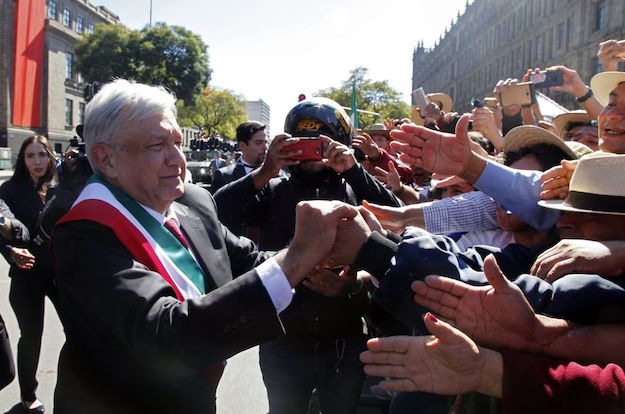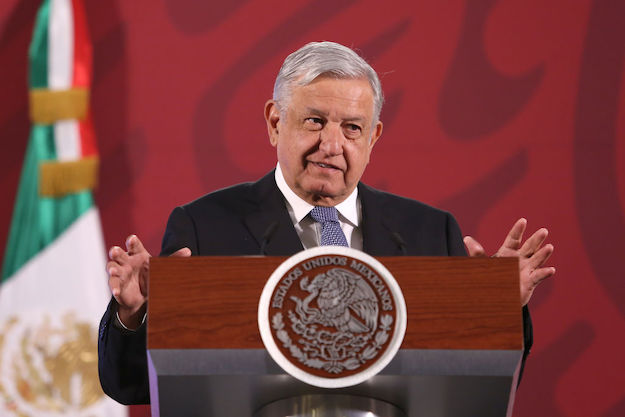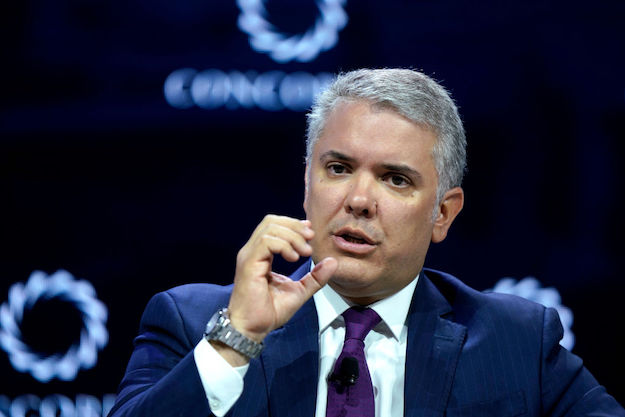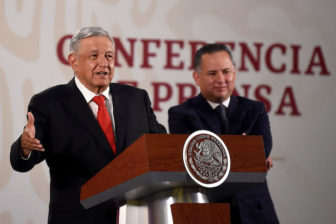MEXICO CITY – Andrés Manuel López Obrador became president on a promise to put the poor first. But his plan to replace a widely celebrated anti-poverty program has some experts concerned the new administration is being reckless in its efforts to level Mexico’s inequitable economic and social playing field.
Earlier this month, López Obrador (widely known as AMLO) outlined major changes to Mexico’s conditional cash transfer (CCT) program, Prospera. Mexico pioneered CCTs in the 1990s, and the methodology – which includes direct payments to poor families in exchange for keeping kids in school and attending regular health checks – has been a key part of the country’s anti-poverty agenda ever since.
Roughly $3 billion from the Prospera budget will now fund the basic education portion of a new scholarship program, Becas Benito Juárez, said Leticia Ánimas, who heads the new program. Health and nutrition incentives – which CCT proponents say help improve the lives of the poor – have been eliminated in what Ánimas called a broad rethinking of Mexico’s fight against poverty.
“Prospera’s deficiencies won’t be solved solely by the program that replaces it … those deficiencies are also in social policy, in economic policy, in Mexico’s labor market,” Ánimas told AQ via email. “The way of thinking, of designing and implementing public policy has changed. Not just a single social program.”
Ánimas said the administration would publish full details of the new program by Feb. 28. Beneficiaries will still need to enroll their children in school to qualify for support, but conditionality – the primary feature of the CCT – will be “less intense” than under Prospera.
“Health seminars, medical checks (and other obligations) were a burden on women and subjected them to discrimination from potential employers, as they would repeatedly need to ask for time off,” Ánimas said. “(Needing to prove that they met conditions) also created an atmosphere in which women could be extorted or taken advantage of.”
Experts concede that abuses of the type Ánimas described have likely taken place, but say there is no evidence to support the government’s claim of systemic use of Prospera (or its precursors) for political gain.
Rodolfo de la Torre, who studies social policy for CEEY, a Mexico City-based think tank, told AQ that the government’s opposition to the program was based on anecdotal, not statistical evidence.
“It’s a double problem because even then, there’s no punishment for the supposed abusers,” De la Torre said. “We’re left with a fairly weak argument against the program.”
Experts also say the government’s view that CCTs have failed to reduce poverty is incomplete. At a recent press conference, López Obrador pointed to Mexico’s stubbornly high poverty rate as proof of the program’s failure; the official figure has hovered around 45 percent for the last decade, even as Mexico’s CCT has expanded.
But that number may not capture the full effect of the program. While Prospera has not pushed as many participants over the poverty line as proponents would like, studies show it has helped reduce both extreme poverty and the severity of poor families’ needs in general.
“The goal (of the program) is to bring participants to the labor market with a greater amount of human capital, and in that Prospera has been successful,” De la Torre said. “If they then can’t find a job with a salary big enough to overcome poverty, it also has to do with Mexico’s lack of growth, and that economic growth hasn’t been inclusive.”
Proponents of CCTs say that incentives for preventive health care and nutrition for young people help break the inter-generational cycle of poverty. According to one recent study, Prospera beneficiaries were 37 percent more likely to have a job than counterparts who were never exposed to a CCT.
“On health and a huge number of other outcomes … there are hundreds of studies and the overwhelming majority are positive,” Susan Parker, a professor at the University of Maryland who studies Mexico’s CCT programs, told AQ. “I wonder if the administration has looked at the evidence at all.”
When asked what criteria the government had used in making its decision to replace Prospera, Ánimas noted a recent study – published by an independent government body under the previous administration – that showed limited differences in overall health outcomes between families who received the payments and those who did not. By some measures, though, the study did show positive results for Prospera recipients over the last six years, particularly regarding nutrition and food security.
Ánimas also said that Becas Benito Juárez – which in addition to basic education will provide scholarships for high school and university studies – was best understood as one of many resources that under the new administration will be available to vulnerable families.
“Not a single person living in poverty or vulnerability will be overlooked by this government’s social policy,” Ánimas said.
As with López Obrador’s slowdown of former President Enrique Peña Nieto’s 2013 energy reform, and his cancellation of a $13 billion airport project outside Mexico City, the previous administration’s misdeeds – both real and perceived – have given the new government extra leeway to pursue sweeping policy changes. A string of corruption scandals and a tin-eared response to escalating violence left Peña Nieto with approval ratings in the 20s by the time he left office. By contrast, 86 percent of Mexicans approved of López Obrador in a recent poll.
On social policy, Peña Nieto’s administration faced numerous accusations of irregularities and overspending related to Prospera, lending credibility to AMLO’s claims – at least among supporters – that the program was beyond repair.
Few dispute there is room to improve Prospera, and evidence from similar programs outside Mexico suggests that subsidies given to poor families without conditions may be equally as effective as those that include them, in some circumstances. But experts say López Obrador’s decision to fundamentally change one of the most widely replicated social programs of the last 20 years was, at minimum, a hasty one.
“The normal thing would be to do a pilot, and check to see what happens without conditions,” said Parker. “As is, these changes are not based on the government saying, ‘We’ve done a careful diagnostic of the program’s limitations and we’re going to try to remedy them.’”
—
Russell is a senior editor and correspondent in Mexico City for AQ. Follow him on Twitter @BenPaulRussell









